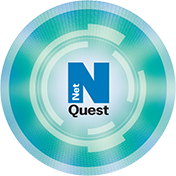Disaster recovery plans aren’t just nice things to have — they’re critical for safeguarding the future of your organization, should the worst happen. According to FEMA, some 40% of companies close their doors for good after a natural disaster, and that’s not even taking into consideration the man-made catastrophes that can affect your organization.
A disaster recovery strategy takes a proactive approach to business continuity by preparing for the worst-case scenario before it’s too late. No matter the type or scale of the disaster, whether it’s due to a data breach, natural catastrophe, failing systems, or human error, a robust backup and recovery strategy will protect you in almost any eventuality.
Moreover, there’s no need to restrict yourself to risky manual backups or in-house resources. These days, with the cloud on your side, nothing should get in the way of your ability to continue doing business following a severe event.
That’s not to say backup and disaster recovery are easy to get right. Even in the era of the cloud and managed services, there are still some challenges that businesses need to overcome. Here are some of the biggest and most common ones:
Unclear service level agreements
Most business leaders appreciate the importance of keeping data safely backed up. However, most outsourced or cloud services focus only on backup backups and barely mention strategies for implementing comprehensive plans or decreasing recovery times. Your efforts will only be effective if everything is clearly spelled out, including the recovery process, which is equally important as backup itself.
Providers of cloud-hosted backup services sometimes capitalize on this ignorance by charging higher rates for disaster recovery. Making matters worse, they may even fail to clearly indicate their rules regarding additional charges in their service level agreements (SLAs).
It’s imperative that you put equal focus on backup solutions and recovery procedures since one can’t work without the other. Consider, for example, how much data you can afford to lose and how much downtime is acceptable to your business. You’ll want to be sure that your service provider’s SLA clearly states the obligations of both parties and aligns with your business interests.
Regulatory compliance and security restrictions
Meeting stringent state and federal government-mandated compliance regulations gets harder every day. Businesses across all industries are required to meet basic privacy and security standards, but those in healthcare, financial, and legal have especially difficult obligations. That’s why for most organizations, data governance and business continuity are inextricably intertwined.
When choosing a backup and disaster recovery vendor, you’ll need to make sure they’re familiar and compliant with the regulations specific to your industry. For example, if you’re in healthcare or you handle patient health information on behalf of healthcare providers, any vendor you partner with must employ experts in the Health Insurance Portability and Accountability Act (HIPAA).
Scalability
The world is now generating over 2.5 exabytes (i.e., 2,500,000,000,000 megabytes) of data every day — an incomprehensible amount of information. Even the average small business has several terabytes of sensitive and valuable information that must be kept safe in the event of an unexpected disaster. Increasingly large data sets, combined with the inherent lack of scalability of in-house disaster recovery solutions, is easily one of the biggest challenges that today’s companies face. Even those that are moving their systems to the cloud often run into problems such as limited bandwidth or other “gotcha” fees.
Fortunately, there are reputable cloud disaster recovery vendors that offer maximum scalability without the stingy bandwidth constraints and hidden costs. They provide the best solutions since they’ve reached economies of scale that enable their systems to adapt to your needs, no matter how fast your business is growing.
NetQuest helps organizations in Baltimore, Annapolis, and Towson with backup and disaster recovery strategies that they can count on. Request your free consultation today to learn more about the advantages of proactive business continuity.
Like This Article?
Sign up below and once a month we'll send you a roundup of our most popular posts


